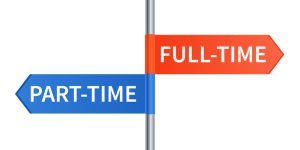Missing Link
We’re sorry, the article you are looking for is no longer available. Below are some Job Seeker related articles or you may use the search.
Empowering Older Job Seekers in the Job Market
The North American workforce is undergoing a significant change as more older adults choose to re-enter or stay…
Stand Out in Hard Hat Roles with These Powerful Soft Skills
When you’re on the job hunt for your next Light Industrial role, leveraging soft skills that may be…
Hottest Healthcare Jobs: High Demand, High Growth
The healthcare industry is growing faster than almost any other sector, creating numerous job opportunities. According to the…
Work with the Best: Job Search with the #1 Largest Office/Clerical Staffing Firm in the US
When you’re ready for the next step in your career, team with the #1 Largest Office/Clerical Staffing Firm…
The Competitive Edge: How to Master Rapid Tech Changes
Technology is evolving at an astonishing pace, transforming industries, workflows, and the skills employers prioritize. With the rise…
Transitioning Out of the Federal Workforce
Are you currently facing the challenges of a federal layoff? Transitioning out of a federal service position involves…
The Ultimate Guide to Career Lessons from Holiday Movies
As the holiday season approaches, classic holiday movies offer a source of comfort and inspiration. They convey powerful…
How to Turn a Seasonal Job into a Full-Time Job
With the holidays approaching, do you find yourself needing more income? If so, then a seasonal job may…
Real Support from Real People—Job Search with Express Healthcare
As a professional in the healthcare field, you may find it challenging to search for the right job…
Charting Your Career Path—Career Development Month
The new year is approaching rapidly, and November is Career Development Month—a time to reflect on the past…
Making the Most Out of a Professional Certification
In today’s competitive job market, it’s imperative to stand out from the crowd. One effective approach is obtaining…
AI for Your Job Search: The Ultimate Guide to Outshining the Competition
AI has become a valuable tool for job seekers, providing more support than ever. AI can aid individuals…









